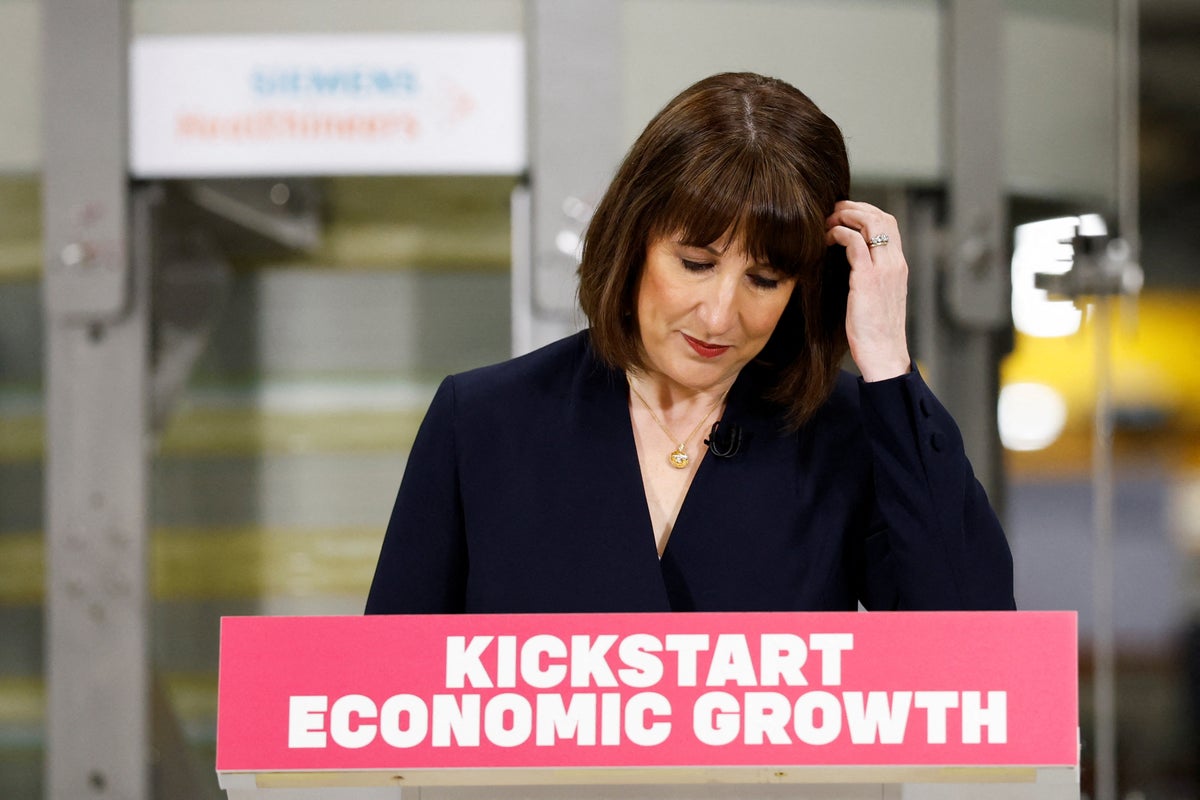Given everything that she’s done since becoming chancellor of the exchequer, the odd thing about Rachel Reeves is that she’s still in the job.
Obviously, she can’t be blamed for everything that’s gone wrong with the British economy, let alone the global trade war Donald Trump has launched; but, notwithstanding the mess the Tories bequeathed her, the failures have been manifest and frequent.
The litany is a familiar and grim one, fit to make any supporter of the government wince: restricting the pensioners’ fuel allowance; hiking employer national insurance contributions; the “tractor tax”; permitting bumper public-sector pay rises without any conditions on productivity; plus a 50 per cent rise in bus fares.
Reeves has somehow managed to design a fiscal framework that is near impossible for her to meet, and in recent weeks has suffered the humiliation of a modest run on the pound and investors dumping British government debt – a mini-crisis over, for now. She walked into the last meeting of the parliamentary Labour Party clapping her hands and chanting “Growth, growth, growth!” – disturbingly Trussian behaviour.
The economy has not yet responded to the torrent of growth plans she’s produced since the election, but confidence has been badly bruised by her downbeat rhetoric in her first weeks in office. Presumably Reeves had something to do with the hubristic promise in the Labour manifesto to: “Kickstart economic growth to secure the highest sustained growth in the G7 – with good jobs and productivity growth in every part of the country making everyone, not just a few, better off.”
As they say, how’s that going, Rachel?
The answer, to be quite precise, is that the UK is, in fact, the slowest growing economy in the G7, with zero increase in national income between the third and fourth quarters of 2024. The economy is tanking, and flirting with recession. Indeed, the Bank of England has just lopped its UK growth forecast for 2025 in half, and says that increases in gas and water bills will push inflation back up to 3.7 per cent. There is unhelpful talk about the UK lurching back into “stagflation”.
The Bank of England tossed her a tiny bit of good news with the reduction in interest rates – but the Bank is cautious about how far and how fast future cuts will arrive.
In future weeks, Reeves will need to convince the Office for Budget Responsibility, the markets, her party and the voters that she has a credible plan for public spending over this parliament. By the time she delivers her second budget, in the autumn, the “Growth, growth, growth!” she keeps promising really ought to be starting to emerge.
But palling reforms, expanding airports and greening the UK’s energy supplies will take years, if not decades, fully to meet their potential to boost the economy. There may be a case to be made for Ms Reeves’ policies, but she’s yet to make it: instead, every week is a “reset” week.
And yet… Reeves is still standing.
There are no audible calls for her to go, little backbench plotting and she retains the confidence of the prime minister, despite his reported view that chopping the pensioners’ fuel allowance was a “mistake”. The reasons for her survival are almost entirely negative. There are few obvious candidates to replace her, a sad reflection on a relatively lacklustre cabinet; the energetic and persuasive Wes Streeting is too busy, and her coolly assured chief secretary, Darren Jones, is not yet experienced enough.
Second, her being shifted would weaken Starmer, and call into question his judgment and his entire economic strategy, such as it is.
Third, and most powerfully, the damage has been done, and changing chancellor now would look panicky. And what would a new channel or do that was substantively different, aside from presentation? The policies would remain the same.
So, like it not not, Reeves may well be there to stay, either to reap the rewards of her “iron-clad” determination with a booming economy by the next election; or the scapegoat for an ignominious failure that will allow Nigel Farage to slip into power.
She’s been a terrible disappointment but, for the country’s sake, Reeves had better succeed.



